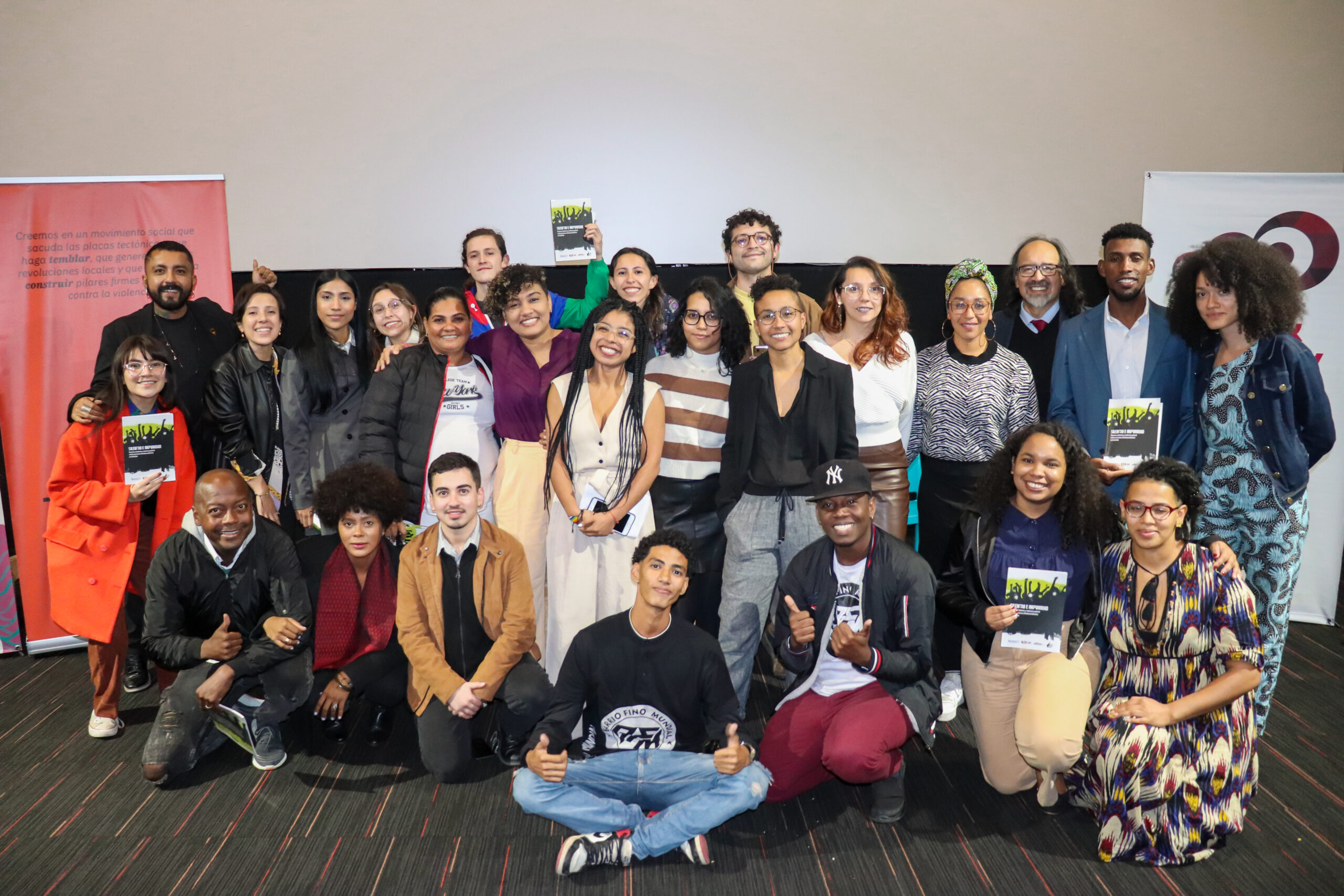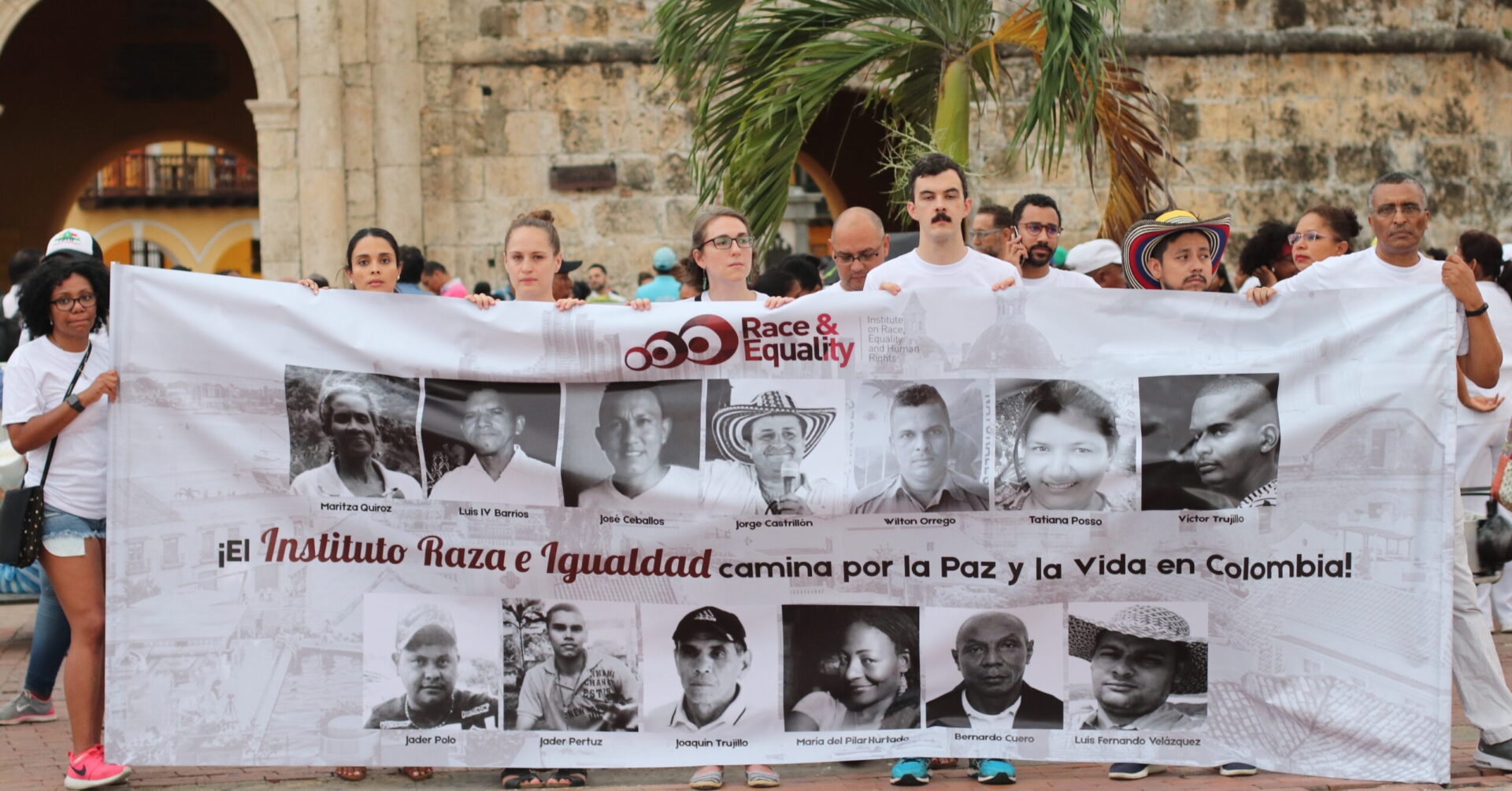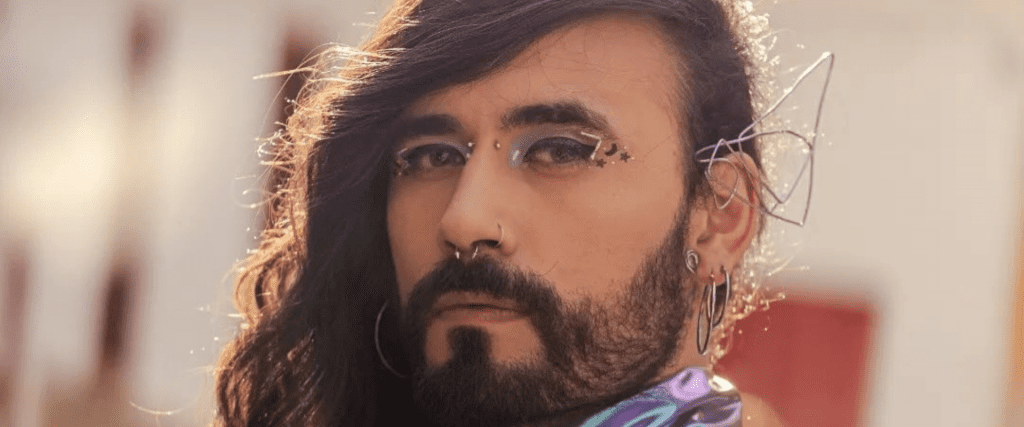In Colombia, an internal armed conflict that lasted for many decades has given way to systemic patterns of violence, racism and racial discrimination, particularly against Afro-descendant communities who are victims of forced displacement. This context was exacerbated by inadequate government policies toward the treatment of victims and has evolved, in recent years, to exhibit racialized police violence.
Despite the efforts made by both the Government and civil society organizations, alarming levels of violations and violence against human rights defenders and social leaders continue to occur. According to the Indepaz report, 186 social leaders were murdered in Colombia in 2022.
Additionally, internal and external foreign migration into Colombia has greatly influenced the demographic and social configuration of the country. In recent years, Colombia has been an attractive destination for migrants, especially Venezuelans fleeing the political and economic crisis in their country. According to Migración Colombia, as of May 31, 2023, there were a total of 1,815,283 Venezuelan migrants in Colombia. For its part, the Colombian government has implemented policies to regulate migration and guarantee the rights of migrants, but there are still challenges to overcome in terms of integration and protection.
Likewise, violence against LGBTI+ people continues to be a problem that persists in Colombia. Despite advances in rights and recognition, many people continue to face discrimination and violence based on prejudice. According to figures from the Network Without Violence (Red Sin Violencia), around 148 LGBTI+ people were murdered in the country in 2022.
Our work in Colombia
Race and Equality provides technical assistance to our partners in order to improve their strategic litigation, advocacy, research and documentation of human rights violations, and communications capabilities. We promote the strategic use of litigation to overcome human rights violations, from training our partners in the use of legal tools available to generating discourse on strategies for legal advocacy. At the domestic level, we promote our partners’ visibility and presence in the development of local public policies or legal changes that are pertinent to them. At the international level, we promote participation in spheres of human rights debate offered by the Inter-American Commission on Human Rights and the various organs of the United Nations System, to submit formal complaints or present reports on the human rights situation in Colombia.
Our focus is developed within the framework of a Regional Articulation Strategy working with civil society organizations as an essential part of our work. We seek to strengthen experiences among human rights organizations in Latin America, join efforts and strengthen individuals so that their collective work can have a greater impact on the region.
Race and Equality’s Racial Justice program in Colombia has been developing national and international research, advocacy and strategic litigation actions aimed at guaranteeing the rights of Afro-descendant human rights defenders, victims of the armed conflict, belonging to ethnic communities and victims of racist police violence. Our counterparts have promoted structural changes seeking to combat systemic and structural racism in the country. Race and Equality is currently part of the Roundtable for Police Reform that seeks to implement a comprehensive police reform that prioritizes human rights, coexistence and peace.
Race and Equality’s human mobility program in Colombia aims to promote access to justice and the protection of human rights for people in situations of human mobility, affected by different forms of violence and discrimination in Colombia, through implementing activities for the defense of human rights, advocacy, international litigation and strengthening the technical capacities of civil society organizations. To meet these objectives, Race and Equality integrates the adoption of intersectional approaches that make visible the differential risks faced by the various population groups that make up the mixed migratory flows coming into Colombia.
Race and Equality has a thematic line focused on lesbians, gays, bisexuals and trans people, which seeks to influence the generation of structural changes to overcome human rights violations in Colombia from a diverse perspective. Our work recognizes the multiple needs and experiences of people with non-normative sexual orientations and gender identities and those who identify themselves outside the margins of the LGBTI+ definition. In that sense, we consider an analysis taking into account the intersections of race, ethnicity, class, disability, etc., as essential to understanding the complexities of sexuality, gender identities and non-binary gender spectrums.

Our Achievements
- In 2022, Race and Equality and other civil society organizations presented the report SILENCE AND IMPUNITY: Systemic racism and police violence against people of African descent in Colombia, in order to denounce cases of racist police violence by agents of the Public Force during the social outbreak of 2021 in Colombia.
- In May 2023, Race and Equality launched the School of Political Advocacy in Motion (EIM), a virtual training space created to strengthen the capacities of social leaders, activists, members of social organizations, public officials, and migrants interested in strengthening their knowledge, skills and competences, and effectively carrying out advocacy processes before national and international institutions to promote the guarantee effective human rights, from an intersectional perspective and with the application of differential approaches.
- Race and Equality, together with the organizations Caribe Afirmativo, the Afrodescendant Foundation for Social and Sexual Diversities (Somos Identidad) and Arco Iris de Tumaco, presented the report “Nos Decian tras de Negras, Maricas”: Experiences and impacts of the armed conflict on Afro-LGBT people in southern Bolivar and the Colombian South Pacific before the Truth Commission, to contribute to the clarification of the truth during the armed conflict in Colombia.



